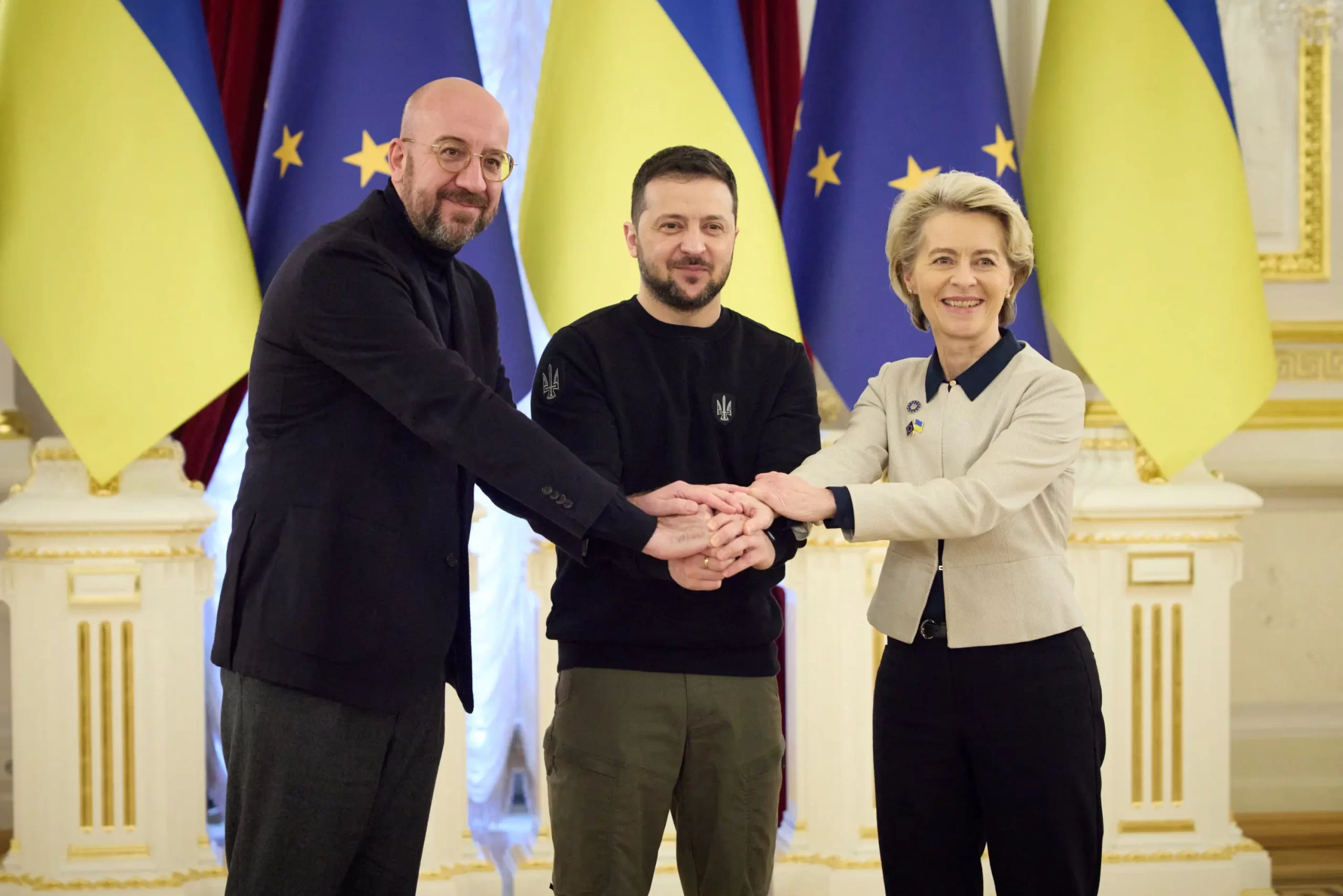
EU is thinking about temporarily going back to trade terms with Ukraine that existed before the war
The EU is contemplating a temporary return to pre-war trade regulations with Ukraine should a new agreement not be finalized by June 5.
EU diplomats indicated on Wednesday that the European Union is considering a temporary reinstatement of its pre-war trade agreement with Ukraine if a new deal is not reached before the expiration of wartime tariff suspensions on June 5.
The European Commission has put forward a proposal for a seven-month transitional period, or until a new agreement is set to take effect, to prevent a trade cliff-edge that could impact Ukraine’s already struggling economy.
Since June 2022, the EU has halted duties and quotas on Ukrainian agri-food products to bolster Kyiv’s economy following Russia’s full-scale invasion, which significantly disrupted Black Sea shipping routes. The emergency measures allowed Ukraine to reroute exports via the EU, but they are now poised to come to an end.
The European Commission has indicated that it will not extend the Autonomous Trade Measures (ATMs), despite Ukraine’s request for an extension.
“The Commission is not intending to suggest an extension of the ATMs tariff suspension, as we are presently engaged in the review of the EU-Ukraine Deep and Comprehensive Trade Area (DCFTA),” a spokesperson for the Commission stated.
The European Union has stated that the review of the Deep and Comprehensive Free Trade Area (DCFTA) will concentrate on aligning Ukrainian production with EU standards. It will also incorporate a safeguard clause aimed at preventing market disruptions for both parties involved.
The suggested transition period arises in the context of escalating tensions with EU farmers, who have organized protests against the surge of less expensive Ukrainian agricultural products, asserting that it has led to reduced prices and weakened their competitive edge. The Commission has implemented “emergency brakes” on the importation of products including poultry, sugar, oats, maize, groats, and honey, which will be activated if imports surpass the yearly average from 2021 to 2023.
The EU is said to be contemplating strict restrictions on Ukrainian sugar imports, which have faced particular criticism for contributing to price fluctuations in European markets.
In spite of these tensions, trade continues to thrive. According to official data, the EU stands as Ukraine’s largest trading partner, with Ukraine being the third-largest supplier of agri-food products to the EU.
Ukraine’s Finance Minister has confirmed that discussions with Brussels are continuing, though no details were provided regarding the potential for a renewed suspension deal.
With the June 5 deadline nearing, both parties are under pressure to harmonize their support for Ukraine with the economic interests of EU farmers, all while maintaining the seamless flow of bilateral trade.
All Categories
Recent Posts
Tags
+13162306000
zoneyetu@yahoo.com



